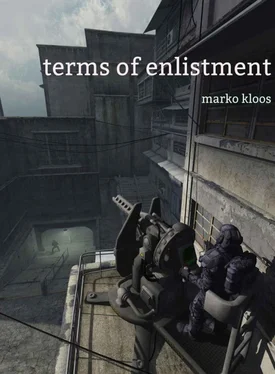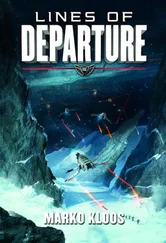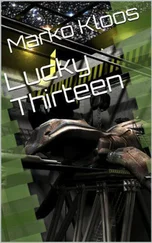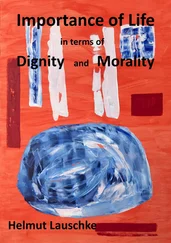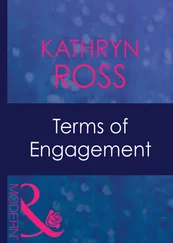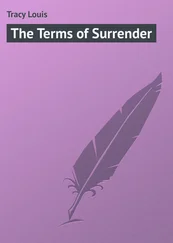We both step away from the wall to give our launcher muzzles some clearance, and then line up the launcher sights with the red diamond marker showing the enemy sniper’s location.
“Fire in the hole!” Hansen shouts, and we both pull our triggers.
The recoil from the launcher is brisk, and I have to take a quick step back to keep my balance. The report from the launcher is muffled, like hitting a pillow with a wooden bat. Our grenades arc over the wall and toward the sniper’s position.
Hansen’s grenade hits first. It kicks up dust and debris as the HE warhead of the grenade goes off. Then my grenade follows, landing just inside the broken shop window.
The explosion from my grenade is only very slightly less noisy than the detonation of the flashbang earlier. The entire front of the store erupts into the street, and a moment later, the front of the building collapses with a roar.
There’s a moment of shocked silence, and then a few of the Second Squad troopers whoop in triumph. Next to me, Stratton laughs.
“That’s one way to do it, I suppose. Sniper down.”
“You’re supposed to save those thermobaric grenades for special occasions,” Baker says to me over the team channel. “Those are expensive.”
“Save ’em for what ? I’m a few weeks out of Basic,” I reply. “Snipers shooting at me is a pretty special occasion right now.”
It’s only when my whole squad erupts into laughter that I realize I toggled my response into the squad channel.
The rest of the mission is rather anticlimactic. The drop ships return empty, and Second Platoon loads up the last of the civilians while First Platoon stands watch. The indigenous revolutionaries have apparently lost the nerve for another brawl after the mauling they received in front of the embassy gates, because we don’t see another living soul out on the street for the remainder of our brief stay.
Then the drop ships are ready to dust off, and First Platoon retreats to the embassy gardens in bounding overwatch, one half of the platoon covering the asses of the other half at all times. This is the most vulnerable phase of the mission, and any tactician worth his salt would have waited until now to bring in the heavy armor to shoot at the fully loaded drop ships, but the locals seem to have used up all their courage, and we board the drop ships and depart unscathed.
Soon after takeoff, the drop ships bank and circle back around. I can feel the thumping of an ordnance release, and a few moments later, the drop ship is buffeted by the shock wave from a series of explosions on the ground.
“Did we just bomb our own embassy?” I ask Sergeant Fallon, who is sitting two seats away.
“Yep,” she confirms. “We’re going to be out a few million bucks, we might as well blow it up ourselves, right?”
“Right,” I say. “Kind of a waste, though, isn’t it?”
She looks at me with an amused expression.
“War’s a waste, you know. We just broke a shitload of property down there. Never mind the poor slobs we killed. Just keep in mind that they started the shit. I would have been just as happy to stay home tonight and have a beer at the NCO club.”
Bravo Company suffered no casualties. One of the troopers from Second Squad, Harrison, got knocked on his ass by the first round from the sniper, but his armor stopped the .50-caliber round. That kind of round is powerful enough to go through the visors of our helmets, and if the sniper had aimed about eight inches higher, Harrison would have been dead instantly. As things stand, he only has a bruise on his sternum, and the sniper is now finely dispersed organic matter.
There’s no guesswork in modern warfare, no chance for anyone to talk up their exploits and claim imaginary accomplishments. The TacLink computers recorded the battle from the perspective of every single soldier in the company, tallied the kills, and analyzed our performance. Sergeant Fallon goes through the squad’s kill sheet, and it shows that I shot three enemy soldiers with my rifle, in addition to the sniper I’ve flushed out with the thermobaric grenade from my launcher. The credit for the sniper is split 25/75 between Hansen and me, according to the damage estimates of the computer. Once more, killing real people boils down to a number on a tally sheet, but these kills won’t dust themselves off and take a turn at defense next round. Tonight, I have ended the lives of four people, added a final period to their life stories with a pull of the trigger.
I guess I should be dwelling on that fact, and wonder how much those enemy soldiers were like me—trying to survive their service time to collect their money in the end—but I don’t. They came to kill us, and we killed them instead, and I don’t feel any remorse about that. In a way, it was a business transaction—nothing personal, just two groups of employees doing their jobs. I don’t feel anger, or hate, or sadness towards those soldiers. All I feel is a kind of exhilaration. We went up against someone else’s varsity team, and gave them a drumming. I am still breathing, and a day closer to my discharge date, and that’s not bad at all.
Fort Shughart is its own little city. Everything we need is available to us within the safety of the base. We have our own movie theaters, clubs, sports facilities, and swimming pools. There’s even a park in a quiet corner near the edge of the base, complete with duck pond, walking trails, and benches.
When we’re in garrison, the workday ends at five o’clock in the afternoon. During the weekdays, we train in the field, we go to the shooting range, we sit in classrooms and listen to lectures, or we do weapons and equipment maintenance, but at five in the afternoon, the day officially ends, and we’re off until seven in the morning. Most of us have dinner in the chow hall and then hang out at the enlisted club, catch a movie, or play some softball out in the well-maintained domed ball fields beyond the vehicle parks. The married soldiers go home to their families and their on-base housing in the residential section, which looks like any other generic suburban neighborhood outside of a PRC, but most of us junior enlisted are single, and we’re quartered in our squad rooms. It feels a bit like a college dorm, only with guns and uniforms, and instead of learning trigonometry or North American History, we learn better ways to kill people and blow up their stuff.
I like my squad mates. First Squad tries harder, works better together, and has more fun than all the other squads. It seems that some of the luster of Sergeant Fallon’s Medal of Honor is rubbing off on the squad, creating a sort of unspoken obligation to meet a higher standard. Most of my squad mates are funny and personable, the kind of people I would have wanted to befriend back home. Only Corporal Jackson, Fire Team Bravo’s leader, mostly keeps to herself. She rarely joins in when we go for a game of pool and a few drinks over at the enlisted club, and she doesn’t often laugh at other peoples jokes or crack her own. There’s something intimidating about her, and it’s not just her usually stern expression, or the tattoos around her eyes. She seems even more dedicated to honing her edge than the rest of us, and as far as I can tell, she spends most of her free time running, practicing drills, or studying field manuals on her PDP.
The other members of my squad are more approachable. Stratton is the joker of the group, Baker is thoughtful and laid-back, Priest is a poker fiend and a skirt chaser, and Paterson is a big, dumb, good-natured jock. Phillips is a bit of a chevron sniffer, which is what they call the guys who try to buddy up to the senior NCOs, but he’s competent and always willing to switch crap jobs with others, so nobody minds it too much. Hansen is the prettiest girl in the company, and virtually all the guys—and some of the girls—have a crush on her. Shes also deadly efficient at hand-to-hand combat training, which is why her admirers content themselves with looking rather than touching. I can’t deny that Hansen is easy on the eyes, but my mind is still fresh with memories of Halley.
Читать дальше
